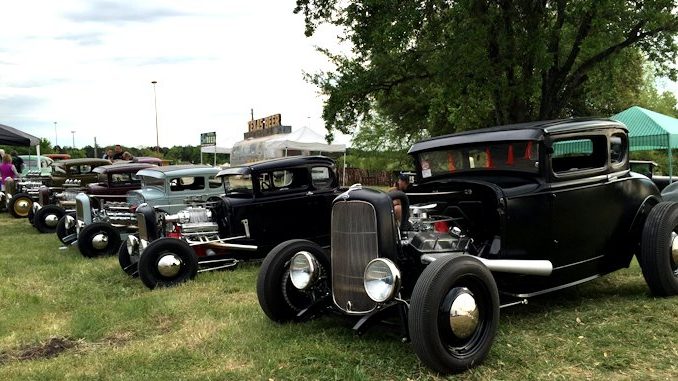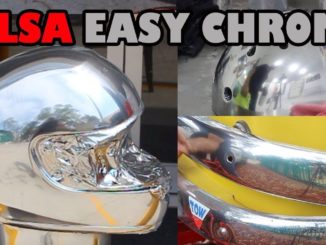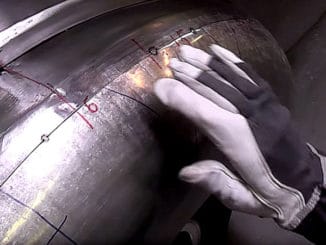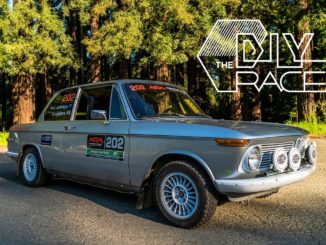
Getting your hot rod or custom car properly titled, registered, and insured can be one of the most demanding aspects of the project and will vary according to the vehicle and your state.
In some states, it’s quite a challenge to register a newly built rod, so it’s a smart idea to do some preliminary research early into the project.
This way, you’ll have an idea of what you’ll need to provide the Department of Motor Vehicles (DMV) or Secretary of State’s office as well as your insurance company.
While these procedures can vary widely by state, let’s take a look at some things you should think about as well as what you may experience along the way.
Custom Car and Hot Rod Appraisal
Once your custom rod is complete, you may want to consider getting an appraisal, even if it’s not required by your insurance company. An appraisal done by a certified appraiser will be very detailed, containing numerous photographs as well as a list of components in addition to information that explains how the appraiser arrived at the ride’s valuation.
Having your rod appraised by a certified automotive appraiser will be helpful if you have an insurance claim, but it’s also useful if you decide to sell your rod or need documentation of the value for another purpose, such as a divorce or estate settlement, or if you ever want to use the vehicle as collateral for a loan.
Just like finding so many other qualified people to work on your rod, one of the best ways to locate an appraiser in your area is to ask fellow specialty car owners — even those who don’t own hot rods. You can also locate appraisers by checking the directory of a national appraisal association such as the International Automobile Appraisers Association.
Once you’ve compiled a list of appraisers in your area, call them to learn more about their services. Since hot rod and custom-built car appraisals are quite different than other vehicle appraisals, especially vehicles that have been historically restored, make sure the appraiser you select has some experience with hot rods.
Ask to see a sample of a hot rod or custom-built vehicle appraisal or at least a detailed list of what the appraisal includes. Ask about the appraiser’s certification credentials and a list of references. Then contact those people to learn about their experience with that appraiser.
Titling a Hot Rod or Custom-Built Car
If you’ve started your rod project with an original steel car, you may already have a title for it. If you’re buying a reproduction body or body/chassis kit, inquire about the paperwork the manufacturer will provide to help you secure a title before you make your purchase.
If you’re buying a partially completed project from a private party, asking about the title is a key question before you make the commitment to buy. If there’s no title, you’ll want to research the titling requirements for your state to learn what you’ll need to do to obtain a title.
Sometimes when people don’t have titles for their rods, they consider buying one from one of the title companies that advertise in the back of rodding magazines or on hot rodding websites. While these companies may try to represent their activities as legal, the practice isn’t always as innocuous as it seems.
Some title companies issue a fake Vehicle Identification Number (VIN) based on the codes they know are accurate for the vehicle for which you’re requesting the title. Further, if you’re using a reproduction chassis and body as well as an engine that’s not original, you aren’t building a modified version of an original vehicle.
Therefore, it wouldn’t be accurate to register it as one. Other companies create a paper trail that makes it appear as if the rod were sold to you by a dealer in a state that does not issue titles. You then use that paperwork to get the rod registered in your state. Obtaining a title in any of these ways is considered fraud and constitutes a felony in some states.
Misrepresenting your vehicle or using the title from another car constitutes fraud—you simply don’t want to go there.
It’s easy to think that nothing will happen if you decide to register your rod using this method; however, some states are increasingly taking this much more seriously.
In recent years professional rod builders and specialty car dealers have been investigated for their possible roles in fraudulently registering vehicles where the year of the vehicle was misrepresented or the value of the vehicle was understated in an effort to avoid smog laws or registration fees.
These types of investigations are not only associated with professional rod builders. In October 2004, Street Rodder Magazine reported that investigators visited a rod run in Costa Mesa, Calif., looking closely for “suspicious” rods, which investigators stated meant any rods made out of fiberglass!
Registering a Custom Car or Hot Rod
Once your rod is complete, it’s time to visit your local DMV to get it registered. Depending on your state, this process can be a slam dunk or quite complicated. Because there are no federal standards for registering hot rods, it’s up to each state to determine what the process should be. Some states view rods as antiques or classics, some register them as kit cars or modifieds, while other states have a special class just for hot rods.
Not all of these classifications accurately fit the definition of a hot rod and may present a whole host of difficulties, depending on your state’s registration process. “In many cases, registering a rod is a matter of how DMV clerks are interpreting the laws for that state,” says Steve McDonald, vice president of Government Affairs at the Specialty Equipment Market Association (SEMA), the United State’s largest automotive aftermarket industry association.
The legislative arm of SEMA has been proactive in working with states to ensure that rods can be registered more easily. As McDonald explains, “We want to reduce the confusion associated with registering a hot rod and make it more consistent from one state to another.”
If your state doesn’t have a hot rod designation for registering your vehicle, it would be wise to research the registration process long before you’re ready to put your rod on the road. There’s nothing worse than being ready to slide behind the wheel only to discover you need additional documentation to get it registered.
Start by consulting with your local DMV office on what your state requires.
You may want to consider asking other rodders how they handled the process and even making note of any specific clerks they worked with. If you find that the local DMV isn’t helpful, McDonald advises paying a visit to its headquarters to make an appointment with someone able to correctly interpret the regulations for your state.
While these stories may be unnerving, don’t let them deter you from building a rod. With a bit of leg work, you can learn how to properly register your rod in your state, regardless of whether you’re starting with some original steel or building a rod entirely from reproduction parts.
Hot Rod and Custom Car Insurance
Ideally, you’ll want to insure your rod long before you are ready to drive it. In fact, it’s a good idea to insure it during the build process. The first step is to call your insurance company and inquire about their procedures for insuring a car that’s under construction.
If you do insure it while it’s in progress, you’ll want to make sure that it’s covered with comprehensive (fire, theft, etc.) while being stored or worked on and while being transported. As the build progresses, you’ll also want to periodically increase the amount of insurance.
Your car will be protected best if you opt for an agreed value policy such as those offered by Hagerty and other companies offering specialty collector car insurance. With an ordinary insurance policy, your insurance company may end up determining the value of your rod, without regard to the replacement value or your investment.
Regardless of whether your insurer requires documentation as to your hot rod’s value or not, you should keep supporting evidence for yourself. Take pictures throughout the build process and keep all of your receipts in one location.
This is a good way to keep track of how much you’ve spent should you have an insurance claim, but having your receipts in one envelope or drawer is also helpful when it comes time to return those parts you don’t use.
5 Things To Know Before Shopping Insurance Quotes
Whether your collector car is a garage stored trailer-queen or a dedicated daily-driver, you need to properly insure the vehicle to protect yourself and the investment if you do take it out on the streets.
There are plenty of myths and rumors about insuring classic cars and hot rods:
- you can use normal auto insurance,
- you have to have an appraisal,
- if anything is modified you can’t insure it.
Sorting out the truths and misconceptions can be a challenge. Here are five things you need to know before you go shopping for classic car insurance quotes:
1. Standard auto insurance coverage is not enough.
If you aren’t concerned with the value of your vehicle (think beater), and just want enough coverage to protect you from theft and keep your vehicle street-legal, you can get away with adding your vintage ride to a regular auto insurance policy.
However, you may be better served by asking your insurance agent to refer you to a company that handles special collector car policies. These policies generally pay an agreed amount for a total loss, rather than the cash value paid with conventional insurance, and that the agreed amount can be the full insured value of the car, less any deductibles.
Even better, the deductible for a collector car policy is often nothing.
2. Collector Car policies are neither expensive nor substandard.
Actually, when it comes to insuring your classic car, or hot rod, you’re likely to find that a specific collector car policy is less expensive than bundling your specialty vehicle with the family SUV.
The reason such policies cost less has nothing to do with the standard of coverage, either. Such policies are less expensive because collector cars pose less of a risk to the insurance company.
Unlike your family car, the hot rod you spend hours tuning isn’t likely to be driving every day, or on busy city streets, but on a limited basis on tracks or other less crowded environs.
Classic car insurance companies understand this and tailor their products accordingly.
3. You do not have to be in the car for insurance to be valid.
There’s a popular myth propagated by an insurance ad that depicts a vintage car owner having his claim denied because he wasn’t in the car when it was damaged. This is grossly untrue.
What is true, however, is that some policies and coverages include guidelines to assure that the collector car is treated like a prized possession. They include:
- The policy holder must also own at least one passenger car, and in some cases there must be a conventional car for each licensed driver in the household.
- Usage is limited to pleasure drives and hobby activities (car shows, etc.)
- The car must be stored in a garage when not in use.
- The owner must have a good driving record
- The owner should have at least ten years of driving experience
4. Your car does not have to be an actual antique to qualify for a collector policy.
With the exception of Massachusetts, where vintage cars have to be at least twenty-five years old (the defining age for an “antique” car), it is possible to get collector car coverage for models that are as new as fifteen years old.
But such vehicles must be among the list of acceptable options, which include street rods, classic cars, muscle cars, vintage motorcycles, and certain collector vehicles from the 1980s. Generally speaking, however, getting collector coverage will be easier if the car really is a certifiable antique, 25 years old or older.
5. Appraisals are not always required.
Generally speaking, there are very few hoops one must jump through in order to insure a hot rod or any other collectible car. With most insurance companies, appraisals are not required unless the car in question is either heavily modified, unusually expensive, or extremely rare, but the insurer does have the right to request one.
Normal application requirements generally include:
- Confirmation that the car is stored in a garage when not in use
- Confirmation that the car is driven on a limited, for-pleasure basis
- Recent photos of the vehicle
- Itemization of any major modifications
- Payment of the premium




